Photographers can at times go through a phase when they are not motivated to shoot anything, or they are just not satisfied with how their shots turn out. Travel photographers tend to struggle as well, and the Covid times made it difficult for me to go out and shoot my usual niche.
You can of course be a tourist in your own town – we have even written about that. However sometimes it’s just good to try new techniques, new styles. Recently I stumbled upon a great blog post by Topaz Labs, the purveyors of fine editing tools. It was written about the fine art architectural photography of Julia Anna Gospodarou.
Now I will be honest, I had never heard of her but as soon as I looked at her work I was inspired. She shoots fine art, long exposure, daylight architectural shot and they are visually stunning. With her images seared into my mind I though I would give it a go myself. Now whilst the results were nowhere near as amazing as Julia Anna Gospodarou’s I was quite pleased with the final images. Today I am going to share with you how I created my own long exposure architectural images.
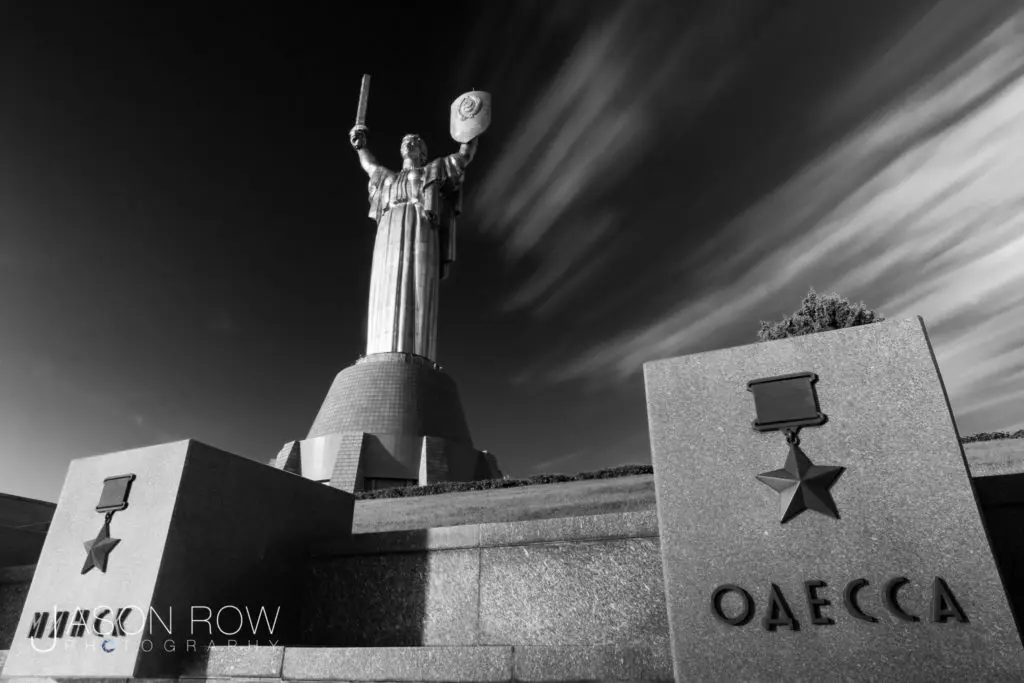
The Gear You Need
We wrote a full article on long exposure photography gear so head over there if you want to dig a little deeper. In the meantime…
You don’t need a super expensive high end camera. Any decent DSLR or Mirrorless will suffice. The prerequisite is that it has either a bulb mode or the ability to accept a remote control. Yu are looking at exposure around the four minute mark.
Of course architectural can be shot on any lens, depending on what you want to achieve. However, the most dramatic and striking shots will probably require a fairly wide angle. Most the images I took were on a Fuji 14mm. With crop factor this gave me the equivalent of 21mm full frame.
Given the very long exposure times, a good sturdy tripod is a must. You need something that is not going to move in a stiff breeze. I would also recommend a ball socket head. These are often easier to position than pan/tilt heads and can lock off tighter. For extra rigidity you can often hang your camera bag off the bottom of the tripod centre column.
A remote release of some sort is also a must. For my Fuji X-T2 I used an old fashion cable release but you can also use electronic remotes. So long as you reduce the need to touch the tripod and get get your shutter speeds low enough.
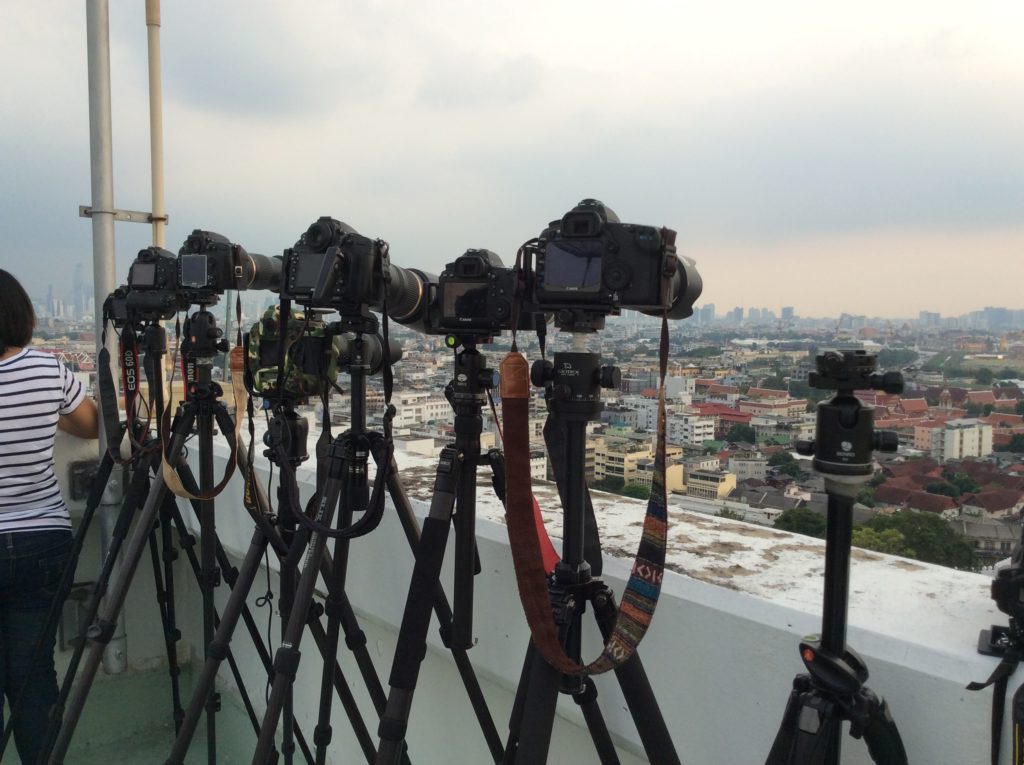
The Neutral Density Filters.
The last thing you are going to need are neutral density filters. On a bright sunny day you will need to knock off down around 15 stops of light to get your exposure right. In my initial attempts I used three Format Hightech square filters stacked together. This however only got me down to an 11 stop reduction. Also because the filters were square, the gaps between them allowed for some pretty prominent light leaks and the accompanying flare on the image.
To counter this I bit the bullet and purchased a 10 stop, ND1000 filter round filter. I stacked this with my 6 stop variable ND. This was also a round threaded filter. This combination prevented any light leaks. It also, importantly did not introduce any vignetting on my 14mm lens.
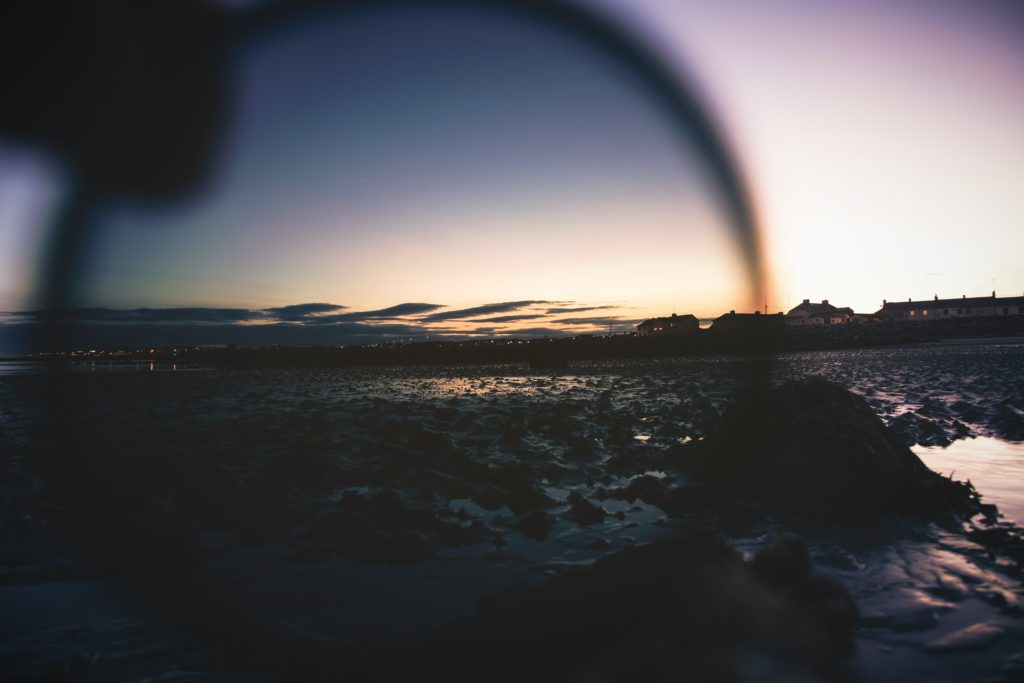
Getting The Shot
I am blessed enough to live in a city where, in summer, we have blue skies virtually every day. Sadly to shoot long exposure architectural, this is not a good thing. The concept behind shooting this still is to contrast the fleeting motion of nature with the permanence of the man made.
In other words you need some form of natural motion to make the shot work.
In most cases that will be clouds. When you have decided on the structure that you wish to photograph, you need to look for striking angles. But that’s not all, as in all photography you need to analyse the light but in this case, the direction the clouds are moving. This direction is important because it becomes a compositional element of the image, drawing the eye towards the main subject.
Of course for the shot to work you still need to make sure there are other compositional elements at work, drawing the viewer towards the structure. These can be leading lines, thirds or negative space. You also need to think in monochrome because this is where these types of shots work best. Look at the light and shade and be aware that over the period of a long exposure, that could change.
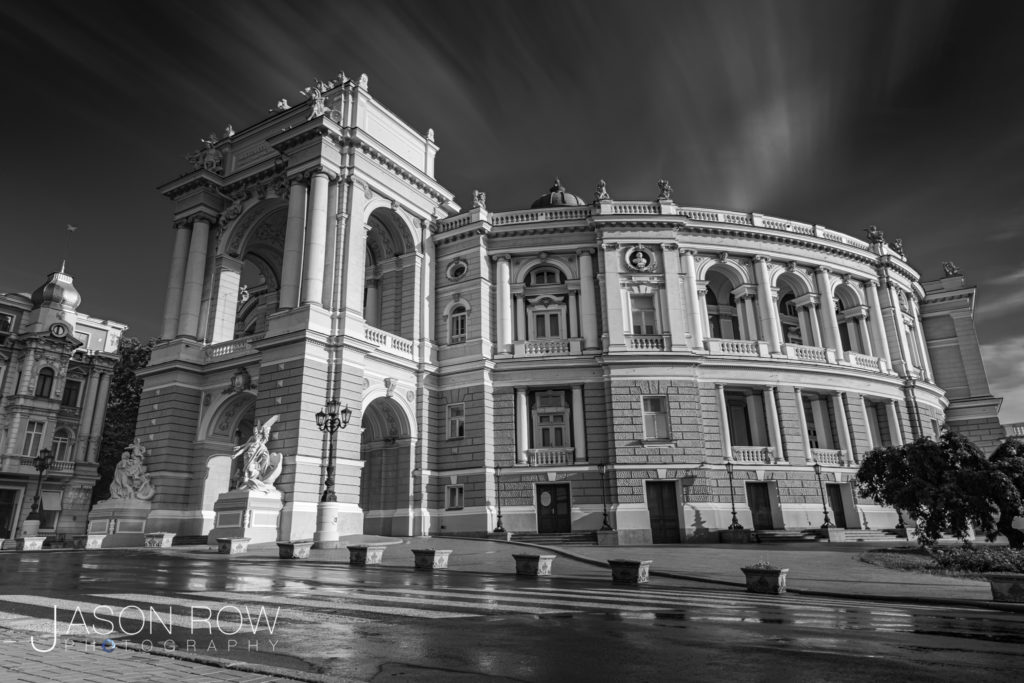
When you have set your shot up, you are going to need to think about exposure. A matrix exposure metering mode is best unless you are comfortable with spot metering from various locations within the scene. You want to aim for an aperture of around f/8 to f/11 to reduce diffraction and base ISO. You will need to meter with the filters off of the camera. This will prevent any errors in colour of exposure. Shot RAW to maximise dynamic range and to be able to set white balance later on. This is important even when the shot is going to be black and white.
Once you have found the exposure you need to calculate what it will be once the filters are added. I use an app called Photo Pills. Its has all sorts of amazing tools for photographers, one of which is an exposure calculator. You plug in your base exposure and the amount of ND you have added and it will give you the correct exposure. You need the shutter speed to be around four minutes or more to get the motion in the clouds.
One last little tip. Switch off any long exposure noise reduction settings in your camera. These work by taking a black frame after the original exposure to reduce the noise. The problem is that it will double your exposure, from four minutes to eight. At base ISO you should not see any significant noise even with a long exposure.
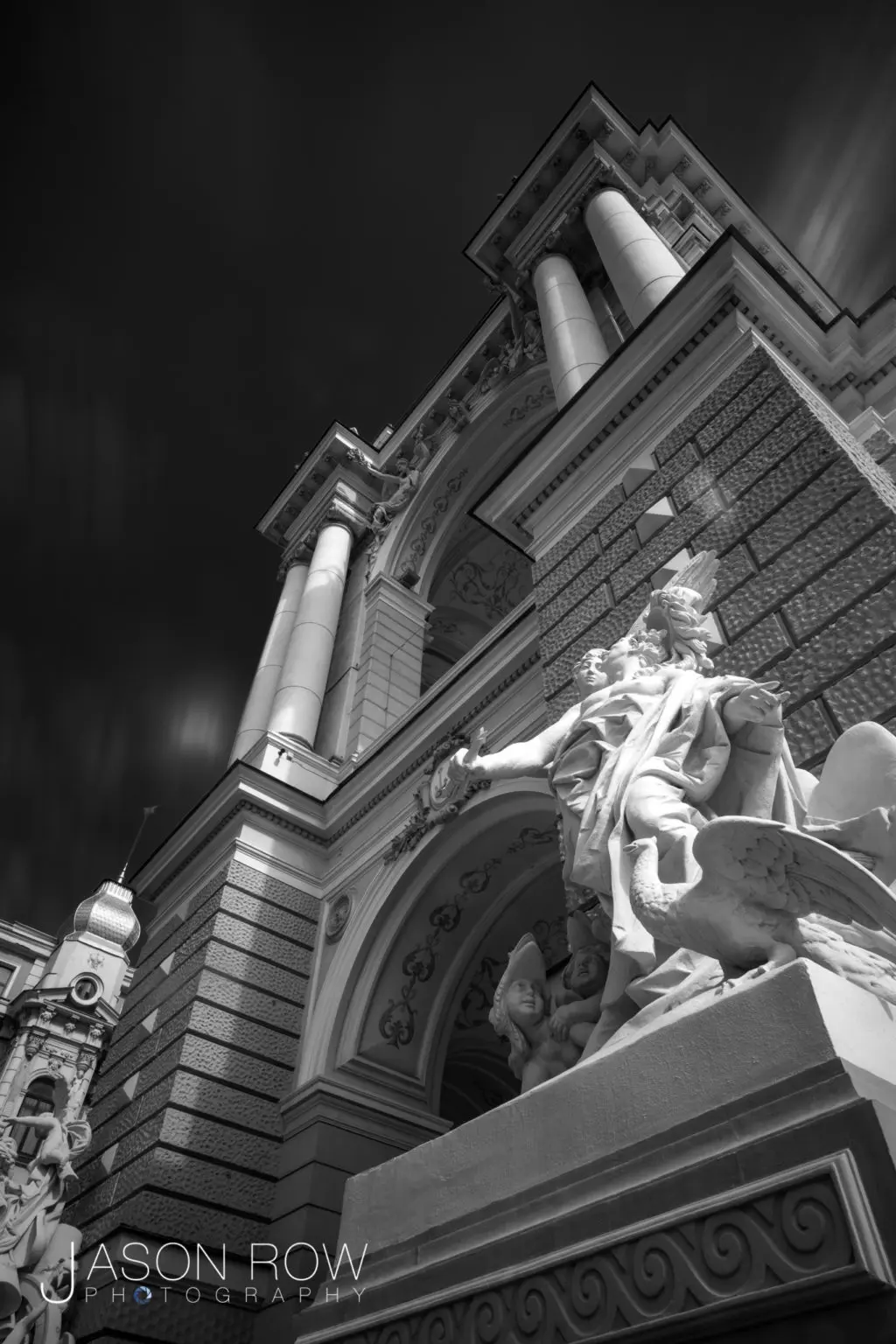
Post Production
I will not dwell too much on post production at the moment. If people want a full tutorial, let me know in the comments. However for my initial shots I have used Lightroom. I used the Black and White control in the basic tab to get the images into monochrome.
I then work with the blacks, white, highlights and shadows to get the punch I want from the image. Sliding the dehaze up can help punch out the clouds, especially from a blue sky.
When you work in Black and White mode, the HSL tab become the B & W tab. It allows you to manipulate the individual colour channels in the black and white image. I have found that sliding the blue left will dramatically darken a blue sky and give great impact to the image.
Long exposure architectural, does not always warrant being turned to monochrome, sometimes leaving the image in color can be more effective.
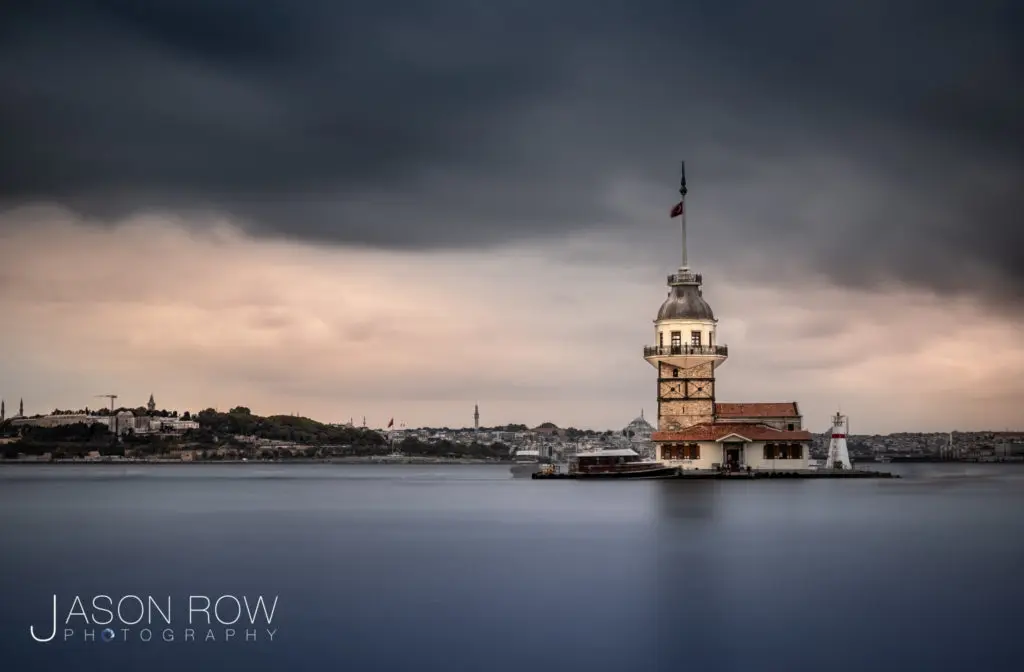
Trying something new is always a good way to challenge yourself and to learn new techniques. I am by no means an expert at long exposure, architectural photography but the results I have achieved from my limited practice have persuaded me that it’s something I want to take further.
With tips provided in this article, why not give it a go yourself. The results can be quite stunning.

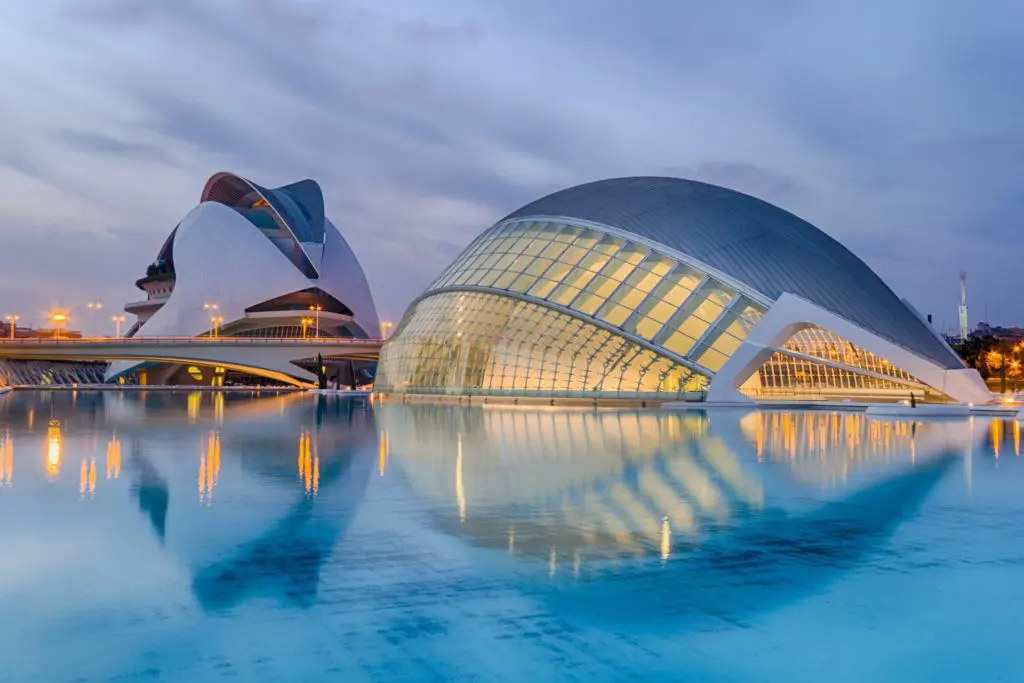
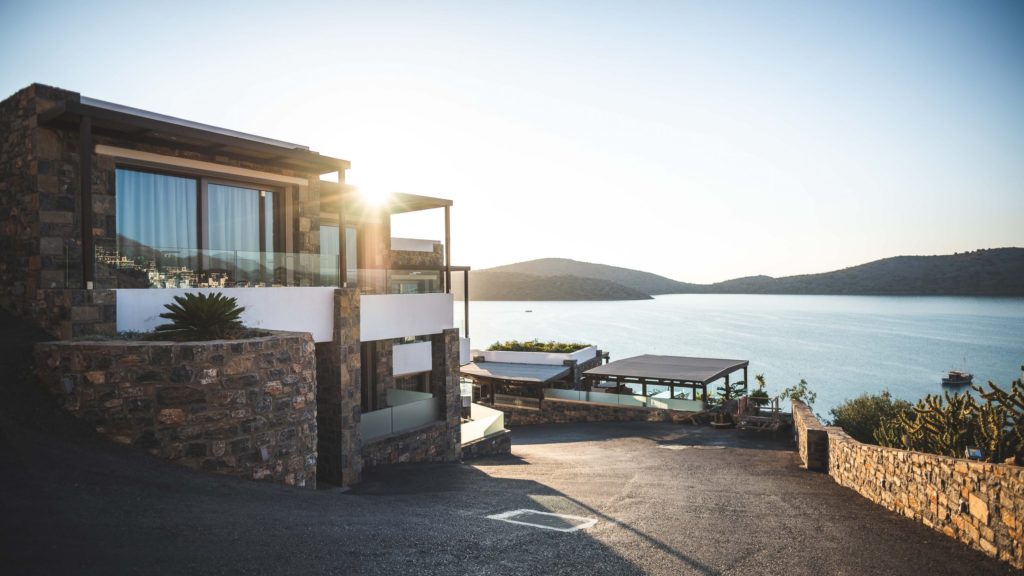
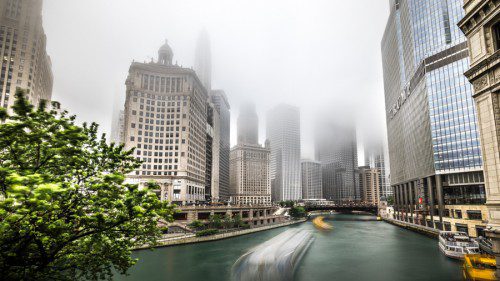
3 Comments
I am confused, as your caption in the first picture says you used a 16 stop ND filter, but later you said a 10 stop filter would be enough. Can I use my 10 stop, and do your recommend trying 4 minute exposure to start? Thank you.
I would like to see a full post production tutorial
Very helpful Jason. My only ND filter only had 3 to 5 stops. Seems like I need more stops for this type of shooting. But I’ll try some architecture with what I have first. Thanks